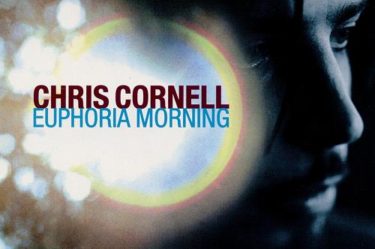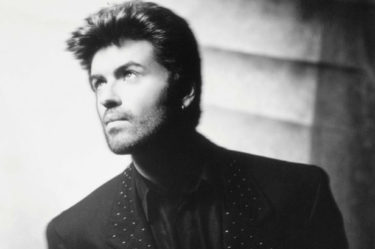Interview: Matt Corby
It’s been a bumpy journey for Matt Corby following his ARIA Song of the Year wins for “Brother” (2012) and “Resolution” (2013). The Australian singer-songwriter found himself feeling the pressure to record his first full-length album, but discontent with the final outcome, Corby ditched it and spent almost two years regrouping and coming to terms with his failures.
After locking himself in seclusion for two months in a cottage in rural NSW Australia, Corby finally emerged with his debut record, Telluric. The early offerings from the album (due out March 11) present him in previously unexplored areas. The soulful slow-burner “Monday” and the groovy ’70s-throwback “Sooth Lady Wine” add a new complexity to his sound while still preserving his yearning whispers-to-a-wolf-cry vocals.
In this conversation, Corby discusses why he decided to abandon his initial album, how he’s able to maintain complete creative freedom, and the philosophical concepts ingrained in his songs.
Laura Antonelli (Songfacts): What process yields the best outcome for you when you’re writing a song?
Matt Corby: My process for this record was the smoothest it has ever been for me. I had maybe just one other person in the room at the helm at a desk figuring out and pulling sounds with all these instruments. I’d go through playing them all one by one, finding a bed of music.
I’ll try to find something that’s reminiscent of a song with an interesting progression, which normally can take me anywhere between five minutes and two days. It’s a process of finding a melody and then the words are always the last thing. Prescribing meaning to the whole thing is right at the end. I did that on repeat every day when I was trying to write the record. I’ve been trying to learn how to play all these instruments to a degree and get my point across, but it’s good because the demo is instantly there as well as the core of the song. There are always production ideas, but that was the step-by-step process. It’s just painting by numbers from that moment. It’s just whatever you feel that day, that’s what you’ll play. It then snowballs into something that you don’t expect but is always guided by your instincts.
Songfacts: You recorded an album two years ago and never released it. And then you started over and now you have Telluric coming out in March. What was it about that unreleased album that made you not want the rest of the world to hear it?
Matt: I just didn’t really like it [laughs]. I don’t know. I’m not saying that I really like this new one. How do I explain it without sounding strange? [Long pause] I heard all the stuff that I didn’t like about myself in it. I realized that I didn’t want that to be the representation of anything out in the world, because music has power. If you believe it or not, I don’t know, but people’s lives can be changed by it. Now it’s cheap and nasty for the most part. Well, not for the most part. Maybe in the pop world it’s completely cheap and nasty and it doesn’t do anyone any good. You’re more indulging in something that’s maybe adhering to the more negative aspects of what we are as humans like our ego, our greed, and our objectifying of things that should be sacred.
All of that was going on in my head when I was listening to this shit that I didn’t believe in, and I thought that I could do better. You don’t get a second chance at your first real piece of work. I’m like that – I’ll cut and run and just start again. I don’t mind throwing something away. It should be your best or it should be what you want people to hear and something that’s good for people.
Songfacts: And you should be proud of it, right?
Matt: I guess so. I don’t know. It’s not up to you after you’ve stopped working on it. It’s up to everyone else. That’s the weird thing about music: It’s never for anyone to own. You can be the one that wrote and played it but to someone else, it’s the song that they love, which is a weird connection that people have with it. It connects you to nostalgia and other people.
Songfacts: In a recent interview, you said how when you sent Telluric to your label, the first thing they said to you was that there weren’t any singles on it. How do you not let the business side of music taint the creative side of it?
Matt: I think that’s what’s going on for everyone. It’s the biggest musical issue for an artist and the label and the business element of it to work cohesively. They both have different ideas about what they want.
There’s this thing called money in the middle of it that people on either side will work toward based on whatever they think is right. I’ve always taken it with a grain of salt. I haven’t wanted it to affect me too much because I don’t want to let anyone in who I don’t trust. It’s a sad thing to say. Man, it’s so hard to explain because it’s such a weird relationship that you have with a bunch of people that might not even care that much. You know what I mean?
Songfacts: It’s their job.
Matt: Yeah! And you’re a commodity. There are definitely people that work in the industry that give a shit about music and there are definitely people that don’t. Sometimes the people that don’t are in high-up places and vice versa. But the people that I’ve worked with have actually been pretty good and understanding. They push for what they want to a certain extent and then when they realize that I don’t want to do it, they do normally pull back, which is good. Maybe it’s because I’m quite defiant, but I think that’s how you should be as an artist.
No one holds the power. Just because they might give you a bit of money every now and then doesn’t mean that they have the right to change what you do. They sign you based on what you do, so without any of their input, they were already interested. If a record label will sign you in order for you to be moulded into something that can make more money for them, then you should get out of there if you’re that artist. You’ll never end up doing anything meaningful or personable or individual. If you wanted it to sound like that, then why don’t you do it? That’s my philosophy with them.
Songfacts: And not force you to do it.
Matt: Exactly. They understand that now. We’re on a good level with each other. I think after doing this record this time without any of their involvement pretty much at all, it’s been nice for both of us to come back together and be like [happily], “You did good.” “Okay, cool. Thanks for leaving me alone. Thanks for seeing that that was the right thing to do,” and now we have a common understanding.
I guess that’s how it has to go for you guys to see both sides of it because they’re still people. They’re working and making a living. They’re not really trying to fuck you over. They’re just sometimes following orders or maybe they don’t understand their market inverted commerce – the thing that they invented to make music more of a commodity. It doesn’t have to be like that, but that’s just the format that we experience now in 2016.
Songfacts: Let’s talk about the first song released from Telluric, “Monday.” You said that it’s somewhat an admittance to failure. Can you expand on that thought and what inspired you to write it?
Matt: Yeah, I think it was more I was just trying to catch up with where I was lyrically. I actually don’t know how to explain it. [Long pause] I don’t know. Man, it’s such a weird song. It’s complicated. It’s literal. The whole thing is literal. If you read the words, there’s nothing that poetic about it.
Songfacts: Okay. What did you mean by it being…
Matt: An admittance to failure? I meant it was my declaration of being a flawed person, and that’s okay. We’ve all got shit to work on and we’ve all got problems that are going on around us. It’s easier to talk about it and be vulnerable than to keep it in and pretend like you’re doing well because that’s not a concept that actually exists in the human paradigm. You can be in community and making the right decisions, which I guess is doing well, but this life frequency goes up and down all the time. No one is perfect. So it’s just nice to give a little philosophical statement about where you’re at and I guess that’s “Monday.”
Songfacts: You played almost all the instruments on “Sooth Lady Wine.” Can you describe what it was like recording that one and the story happening in it?
Matt: It was one of those songs that came out real quick. When we were writing it, I was with my friend, Alex. It was toward the end of our month together because I spent two months living in this little shack recording the album. I just had that continuous ride like [imitating drum beat], “kis-em kis-em kat-a-ty, kis-em kat-a-ty,” and I was like, “Yeah, okay, that’s cool.” I spent about a half an hour trying to get the flow of that so the ride was rushing and the snare was dragging. After I got that, all the parts came in fast.
It might have been Alex that came up with that [sings], “You sold me out to the man,” and I was like, “Oh, that’s pretty cool.” And then I went [sings], “To the man, to the man with the nuclear plan,” trying to do a little Beatles thing. After that the whole song was like a Bowie song.
“Oh, we’re lost. Get it together. Get it to the seventh state.” The seventh state is a spiritual concept that is basically pure energy, which again is a weird thing to say. People will be like, “That’s stupid.” But from the concepts that I’ve read, it’s interesting, but I won’t go into it.
Songfacts: You can if you want.
Matt: Well, the first stage is man’s a moving, instinctive sexual thing. The second is your emotional state. The third is your intellectual and then beyond that is your balance. Four is what people would think that the Jesus character was: a balanced, enlightened human being depending on whom you talk to [laughs]. It then goes on and on and it probably thinks that maybe the human brain isn’t possible of understanding unless you’re completely Zen Monk style. I guess it’s a pretty far off concept. But if that’s the idea, we’re here to get better at being alive so that’s what we should try to achieve. But we don’t have the information to achieve that or maybe it doesn’t even exist. Who knows? Maybe we’re just here doing nothing.
Songfacts: [Laughs] That’s where “Sooth Lady Wine” came from?
Matt: Kind of, yeah. It’s pretty much impossible to get there in this day in age. There’s so much misinformation. There are so many racial issues and class issues and the world’s just fucked. So the end is like, sooth me lady wine. Just keep me level. Keep me going through this mess in a weird way. The other part is, “If you feel alright, let yourself dance, don’t sit out tonight. If you feel alright, get off your fucking phone, take it in tonight. If you see the light, don’t turn away, it’s reality.” It’s all again just very literal.
Songfacts: What song are you most excited for people to hear from the album?
Matt: I think “Empires Attraction.” It’s going to be the last song on the record. We play it a lot slower now and it feels way better. When we were recording it, we were trying to do a lot. It’s pretty wild production. It’s got a lot going on, but it’s the nicest song I’ve ever got to sing. I don’t know why I like it so much.
Songfacts: Like, beautiful? Nicest in what way?
Matt: I just love singing the lyrics. I like the way the song has this repeated theme on the piano that goes over maybe 24 bars of different bass notes. I don’t know – just everything about it. I’m so happy to play it every night. It’s the moment where I relax in the set because it’s the last song that we play most of the time. So it’s just like, “Oh, cool. Everything that I sing in this song, I enjoy singing.”
It’s not super poetic. No one is going to save you. Superman is not a real concept. There’s no such thing. The whole idea that we as a people need that kind of savior is fucked up. If we all can figure out how to work together then we are the embodiment of salvation for our entire planet. We have the capabilities of it. That’s the gist of it.
Pretty big with the lyrics, I know. You can write a song about a girl or you can write a song about walking down the shops, and it’s fine. I just try and do something as meaningful as I can without trying to be a pretentious loser because it’s genuinely just how I see things. I think it’s how a lot of people see things. I’d like to try and have those conversations with people instead of…
Songfacts: Meaningless ones.
Matt: Yeah! What’s the point? It’s pointless.
Songfacts: What can you recall about writing “Brother,” and did you think it would bring you the success that it did when you wrote it?
Matt: Musically, that song came out quick. I was a bit angry at my manager because he was telling me to write an upbeat song [laughs].
Songfacts: And that’s what you came up with?
Matt: Well, yeah, pretty much. I was like, “Fuck you, man! I’ll write an upbeat song!” [Funny how this tactic often works out for the suits. See: “Dancing In The Dark” –ed.] I sent him the demo of it and he was like, “Yeah! This is really good! We should do an EP. We’ve got this song.” I was like, “Okay. Let’s do an EP.” When we rehearsed it with the band, it became what it became.
It’s actually quite lyrically heavy in a lot of ways. It’s just about fucking up as a teenager and just doing dumb shit and then feeling the guilt of it all. Like, “Oh, man. That was a bad thing to do.” It’s not murdering anyone, but you’re still like, “I don’t want to be a bad person.” Even if it’s just not giving a homeless guy some money – it’s pretty low in the scale but it’s your responsibility to try and help someone if you can. That’s where it came from. It was more of a personal story that I tried to make into a more overarching concept in a way.
But, yeah, it went pretty weird in Australia. It got played a lot on the radio. It did well in the Hottest 100, which was kind of cool. That’s a big deal for Australians.
Songfacts: You wrote “Resolution” in about an hour when you were in LA. What prompted that song to pour out of you so quickly?
Matt: There was a lot of thought that went into it – it probably wasn’t an hour [laughs]. It was an hour of actually sitting down and going, “What is this song? What is happening?”
I had a weird, isolating experience in LA leading up to that moment. I hadn’t left my apartment for a couple of days. I was running out of food. But for some reason, I was just freaked out about going outside. It was weird.
LA is an intense city. I was probably a bit too sensitive. I didn’t have any friends so I was keeping pretty low key. I just whipped myself up into a bit of an emotional frenzy.
You know when you can just be alone and all of a sudden everything’s different? You’re just depressed and it’s like, “Whoa! What the hell is going on?” Out of that moment, I was questioning everything. “Why am I so anxious? What’s my problem here?” I guess the song came out of that.
It’s simple – It’s one of the simplest songs I’ve ever written. A lot of my old stuff is pretty simple. The new stuff is slightly more in-depth. But I think the sentiment of “Resolution” is nice as well.
Songfacts: What motivated you to write “Kings, Queens, Beggars and Thieves”?
Matt: It was the first time I had traveled overseas. The song came out right at the end of that trip. I enjoyed being at that period of my life of just wandering around playing music and not really knowing anyone. I was with this guy who was a songwriter. We were in his apartment. I had those chords and the lyrics came out quite fast.
I’m trying to remember that song now. It’s actually one of my favorite songs. The recording was a good studio moment for everyone as well. What is it? [Sings], “I stood in the halls with the beggars and thieves, the kings and queens.” I’m trying to remember the words. [Sings], “I will carry that weight back home.” That’s right. [Long pause] I’m just trying to remember the verse. I can’t. Don’t worry about it [laughs]. I actually need to play it to remember.
I feel like if I released that now, it would be better [laughs]. People would maybe listen to it a bit more. I feel like no one knows that song. It has completely bypassed everyone.
Songfacts: It’s one of my favorite songs by you. It’s so good.
Matt: That’s sweet. Fuck yeah! That’s awesome.
Songfacts: Actually, my friend, Tim, he covers it all the time in his shows.
Matt: [Surprisingly] Oh, really? That’s fucked up! Man, that’s cool!
Songfacts: Have you ever kept a song to yourself because it was too personal or maybe you were scared of how a certain person would react to it?
Matt: Yeah, definitely. I’ve done that a few times. Sometimes songs aren’t for everyone to hear. There are definitely songs that I have sitting on my computer at home that are just full jerks. If someone heard it, they’d be like, “What are you working on? You’ve lost your mind!”
It’s just good to get that out. It’s an exercise, too. It’s a good way to vent your frustration. If something’s happening in my life, if I just bash this out and sing whatever comes to my head – maybe even if it’s accusational toward yourself or another person – you get it out and you’re like, “Oh, that’s stupid.” You’re like, “Cool. Delete” or I just put it in a pile. It’s not a serious thing. It’s just for fun.
Songfacts: Is there a song in your entire catalog that you think has been completely misinterpreted?
Matt: [Long pause] I don’t know how anything’s being interpreted, to be honest.
Songfacts: You don’t pay attention to it?
Matt: I don’t have much to do with even my Facebook. I think people know that now, which is good. People get bummed at that because they’re like, “Oh, why aren’t you speaking to people?” But I’m like, “I’m trying to!”
Songfacts: Through your music.
Matt: Yeah, that’s the whole idea! And it’s okay. If we ever meet in real life, we can have a conversation. But you should go and live your real life and I’ll go and live mine.
Songfacts: Has a friend ever told you what they think a song is about, and they’re wrong?
Matt: Not really. We don’t talk about that kind of thing. [Long pause] I don’t want to know, to be honest, because it’s done. So it’s like, “That’s cool. You can think what you want to think.”
If someone says something and it’s wrong, I’ll correct them. I’ll be like, “Oh, this is actually what I meant.” But maybe 80 percent of what we conceive to be a song idea or the meaning of a song is not exactly what the artist meant most of the time. It’s not bad – people can take what they want from it. That’s another interesting thing about music: It can mean anything. The lyrics, you can say something stupid with an incredible heartfelt sentiment and for some reason, it might be insanely powerful. It’s weird.
Songfacts: Is there a song that the meaning of it has changed for you over time?
Matt: [Long pause] I don’t think so. Maybe the meanings are always changing? I change lyrics to the songs all the time, too. I don’t know if it matters in a lot of ways because you can take what you want from it. I think most of the time I’m thinking about how to actually deliver it after the meaning’s there. It’s hard to explain. [Long pause] Nah, don’t worry about it. I’m really struggling to explain myself. They’re quite deep questions so it’s very hard on the spot.
Songfacts: I’m going to take that as a compliment [laughs].
Matt: Yeah, it’s good!
Songfacts: How do you know when a song’s completely finished and that there’s nothing more you should do to it?
Matt: I never do. I never think anything’s finished. It’s really not. Recording is only just a moment in time. It’s as good as you can do it until then. It’s never. I would work on shit forever. Someone just tells me, “Yup! That’s good, man. You’re done.” Most of the time they’re like, “Don’t do anymore.” I’m like [franticly], “But this could work!” [Laughs]
Songfacts: Are you ever going to record studio versions for “Runaway” and “Trick of the Light”?
Matt: I have done three studio versions of “Trick of the Light.” I was going to release one on this record and for some reason I didn’t, sadly. People actually fully talked me out of it – there was so much going on at the time and we had so many songs to figure out what to do with. It was just right on the line of not making the cut, but I need to release it. I need to release the studio version because the live version is not right. It’s way too fast. It’s rocky.
The song was never meant to be rocky. It was meant to be this sizzle-y little thing that had heaps of groove but was understated. It’s hard to communicate that live. We get excited and then the song just becomes this whole other animal.
“Runaway,” no. I’ve tried to do it twice and I’m like, “This is a live song,” which I think is cool. Every time we recorded that it was hard to understand the space.
But the studio version of “Trick of the Light” will be heard one day.
Songfacts: What inspired you to write “Trick of the Light”?
Matt: It was actually a song that I wrote with Mocky – a Canadian. It’s hard to remember because it was a long time ago. It’s one of those songs where your expectations are never in line with what’s going on. You can think the world of something and you can sacrifice all you want for it, whatever “it” is, and it can just be something that completely fucks you up and does nothing. It’s just a misadventure. It’s a “trick of the light,” so that’s where it came from.
Songfacts: What was your ultimate goal with Telluric?
Matt: Just finishing it. That was my goal. Seriously. Just getting something done that I could put my name to in some way. Anything after that is whatever. It’s up to everyone else. I have no expectations with it. It might just be a piece of shit. Do you know what I mean?
Songfacts: It probably isn’t.
Matt: Well, maybe, but who cares? I’ll do another one and maybe that will be a piece of shit. It might not be. I think that’s where most people are: It’s hard to know if what you do is actually working for anyone else or not. There’s so much music out there. Why would someone ever listen to what I do? So anything beyond that is a bonus.





No Comment